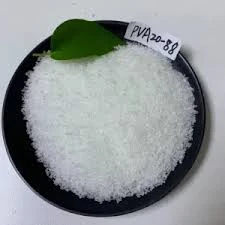The Role of HPMC Tylos in Modern Applications
Hydroxypropyl Methylcellulose (HPMC), commonly referred to as Tylos, has gained significant traction across various industries due to its unique properties and versatility. Tylos is a non-ionic, water-soluble cellulose ether derived from natural cellulose, making it an essential ingredient in both pharmaceutical formulations and various industrial applications. Its functionality stems from its ability to modify viscosity, stabilize emulsions, and act as a binder or thickener, which makes it a valuable component in a wide range of products.
Pharmaceutical Applications
One of the prime domains where HPMC Tylos is extensively utilized is the pharmaceutical industry. It plays a crucial role in the formulation of tablets, capsules, and other oral dosage forms. Its excellent binding properties enhance the mechanical strength of tablets, reducing the likelihood of disintegration during manufacturing and transport. Moreover, HPMC Tylos aids in controlling the release of active pharmaceutical ingredients (APIs), making it an essential excipient in sustained-release formulations. The rate at which a drug is released can be finely tuned by adjusting the concentration of HPMC, allowing for improved therapeutic outcomes and patient compliance.
In addition to oral dosage forms, Tylos is also used in ophthalmic solutions. The ability of HPMC Tylos to provide a soothing effect, coupled with its viscosity-modifying properties, makes it an ideal candidate for artificial tears and eye drops. This characteristic is particularly important for patients suffering from dry eyes, as it enhances comfort and prolongs the residence time of the solution on the ocular surface.
Food Industry Applications
Beyond pharmaceuticals, HPMC Tylos has found its place in the food industry, where it is often used as a thickening agent, emulsifier, and stabilizer. Its ability to improve texture and mouthfeel in food products makes it a popular choice among manufacturers. For instance, in baked goods, HPMC can improve dough handling and moisture retention, resulting in fresher and longer-lasting products. Furthermore, its low-calorie and non-fat nature makes it an attractive alternative for fat reduction in various formulations, catering to the increasing consumer demand for healthier options.
In dairy products, Tylos is used to stabilize emulsions and prevent whey separation in products like yogurt and cheese spread. Its ability to form gels at low concentrations helps to deliver the desired consistency without compromising the taste, making it a highly sought-after ingredient in the food industry.
hpmc tylos

Construction and Other Industrial Applications
In the construction sector, HPMC Tylos is an integral component in the formulation of various building materials, including mortar, plaster, and tile adhesives. Its water retention capability ensures that these materials remain workable for extended periods, improving their adhesion and strength upon curing. This functionality is particularly essential in construction environments where conditions may vary, requiring materials that can adapt to changes while maintaining performance.
Tylos is also widely employed in the personal care and cosmetics industry. Its thickening abilities contribute to the stability and viscosity of lotions, creams, and gels, ensuring a desirable texture for consumers. Additionally, HPMC Tylos acts as a film-former, providing essential protective barriers in sunscreen formulations.
Environmental Considerations
One significant advantage of HPMC Tylos is its environmentally friendly profile. As a cellulose derivative, it is biodegradable and can be produced from renewable resources, aligning with global trends towards sustainability. Manufacturers are increasingly seeking eco-friendly alternatives that reduce environmental impact, making HPMC an ideal choice for industries striving to implement greener practices.
Conclusion
HPMC Tylos is a multi-functional ingredient that has established itself as an invaluable component in various sectors, including pharmaceuticals, food, construction, and personal care. Its versatility, coupled with its ability to improve product performance while promoting sustainability, makes HPMC Tylos an essential ingredient in meeting the evolving demands of consumers and industries alike. As research continues to unlock new potential applications for HPMC Tylos, its role in innovation and formulation development is expected to grow, ensuring that it remains a key player in the future landscape of multiple industries.






